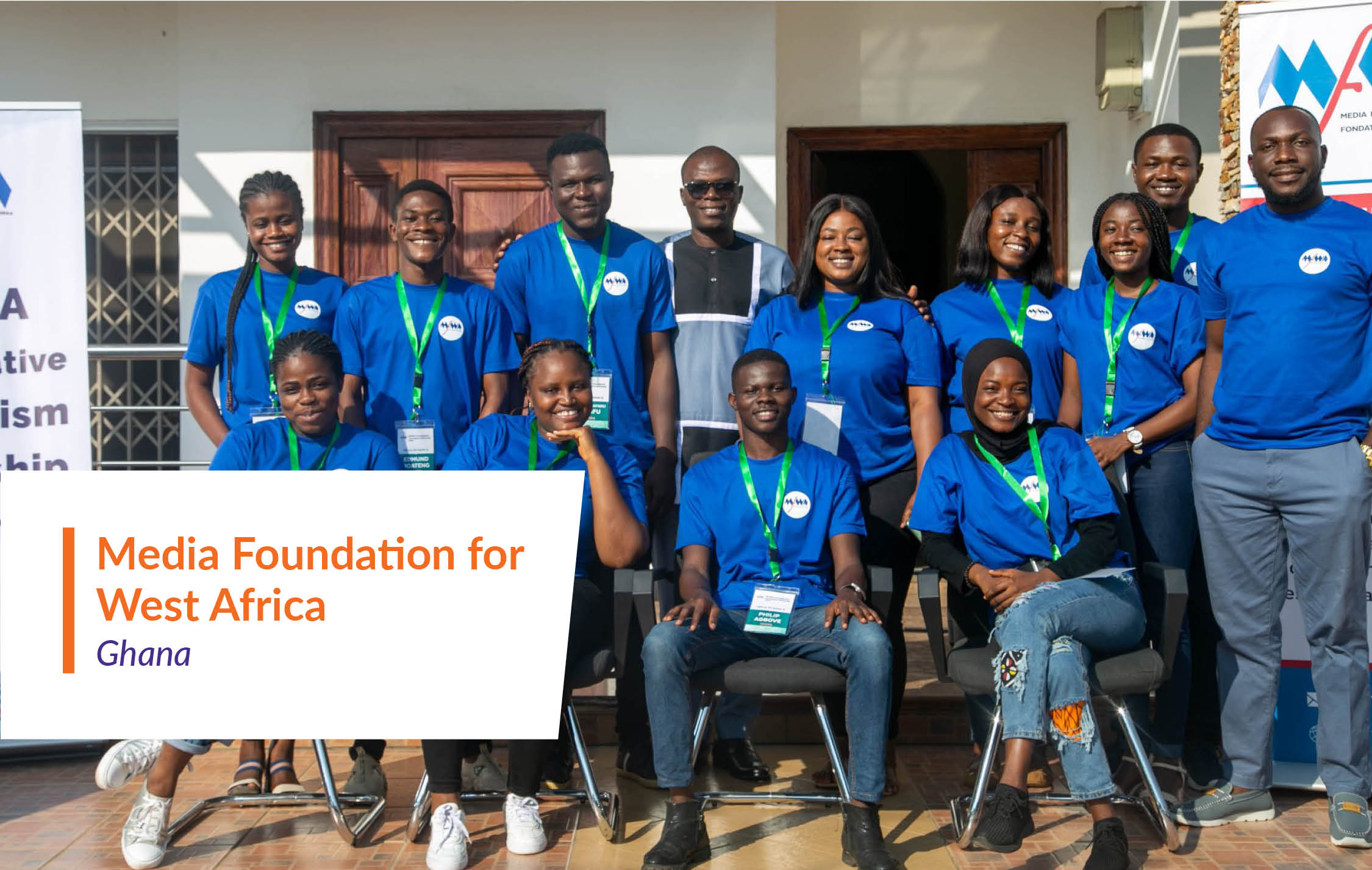Winner
Media Information
Media and Journalism
Transparency and Accountability
Share this
Contact information
www.thefourthestategh.com
Facebook
Instagram
X
YouTube
LinkedIn

The Fourth Estate: Using independent journalism to enhance accountability and rule of law
The Problem
News media in Ghana was heavily impacted by the COVID-19 pandemic. The economic crisis from the pandemic resulted in the closure of several media houses in the West Africa region while others cut back on staffing and reporting. At the same time, governments abused lock-down and other emergency powers to restrict media freedom while disregarding laws around justice, transparency, and accountability. These challenges took place at a time when the media's critical role of countering mis/disinformation about the pandemic, human rights, and health systems had become especially crucial. Meanwhile, media freedom generally has been on the decline. Nearly all news media in Ghana are owned by politicians, who use these outlets to promote their political interests rather than the public interest. The challenges posed by the COVID-19 pandemic only further exacerbated the difficulties faced by the Ghanaian media in delivering their public interest functions.
The Approach
Established in February 2021, the Fourth Estate, was launched as an independent, non-profit initiative to promote quality journalism in Ghana. The project has produced over 200 factual investigative reports covering a wide range of issues, including corruption, human rights violations, environmental concerns, and access to information. To achieve its goals, the project strategically utilizes Ghana's Right to Information (RTI) law and conducts in-depth analyses of government datasets. Additionally, strategic partnerships with various media organizations facilitate the re-publication of reports, maximizing their reach and impact.
While its primary focus remains on issues in Ghana, it has extended its support to neighboring countries like Sierra Leone and Liberia through the Next Generation Investigative Journalism (NGIJ) Fellowship. This intensive four-month training and mentorship program aims to empower young journalists, especially women, with the skills needed for investigative journalism and fact-checking. The NGIJ Fellowship has proven to be an effective way to train the next generation of ethical journalists. Out of the 33 young journalists trained so far, including 14 women, many have gone on to contribute impactful stories to the project.
The Impact
-
The project exposed a corrupt contract between Ghana's Ministry of Finance and a private company that was costing the nation $2 million a month. The President and Parliament ordered investigations and the suspension of the contract.
-
Nearly 300 public officials filed their asset declarations after an investigation by the project exposed them as having previously failed do so. Citizens later submitted a petition with Ghana's Commission for Human Rights and Administrative Justice to investigate the officials.
-
The project exposed fraud in Ghana’s school placement system, resulting in the Minister for Education being summoned by Parliament, and the prosecution of eight persons involved in the scheme.
-
An investigation revealed several media organizations were promoting unlicensed herbal medications contrary to advertising rules and posing public health risks. The Food and Drug Authority announced it would sanction these organizations and the government launched an investigation of the Traditional Medicine Practitioners Council.
-
An investigation revealed that government scholarships were being awarded to the wealthy and political class instead of the needy for whom the scholarships exist. The Office of the Special Prosecutor has commenced an investigation into the matter.
The Future
The project aims to continue nurturing young talent through the NGIJ Fellowship, cultivating a robust pipeline for both The Fourth Estate and partner newsrooms. Plans also include expanding local partnerships in Ghana, forging collaborations across West Africa for cross-border investigations and evolving into a regional (West Africa) investigative journalism project.